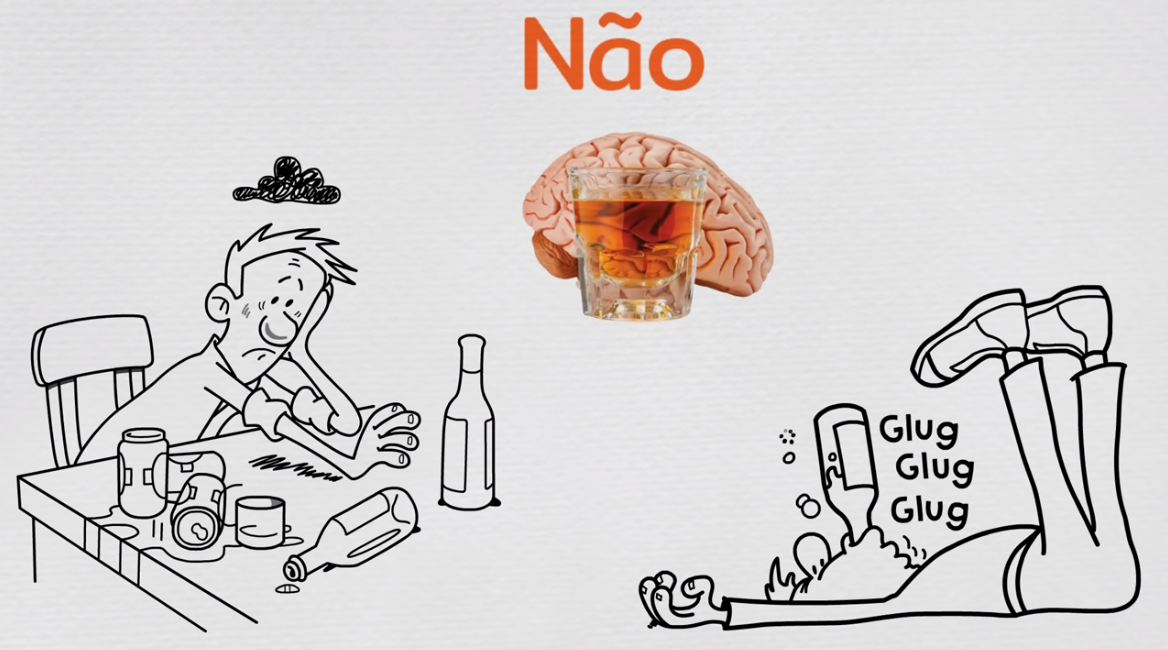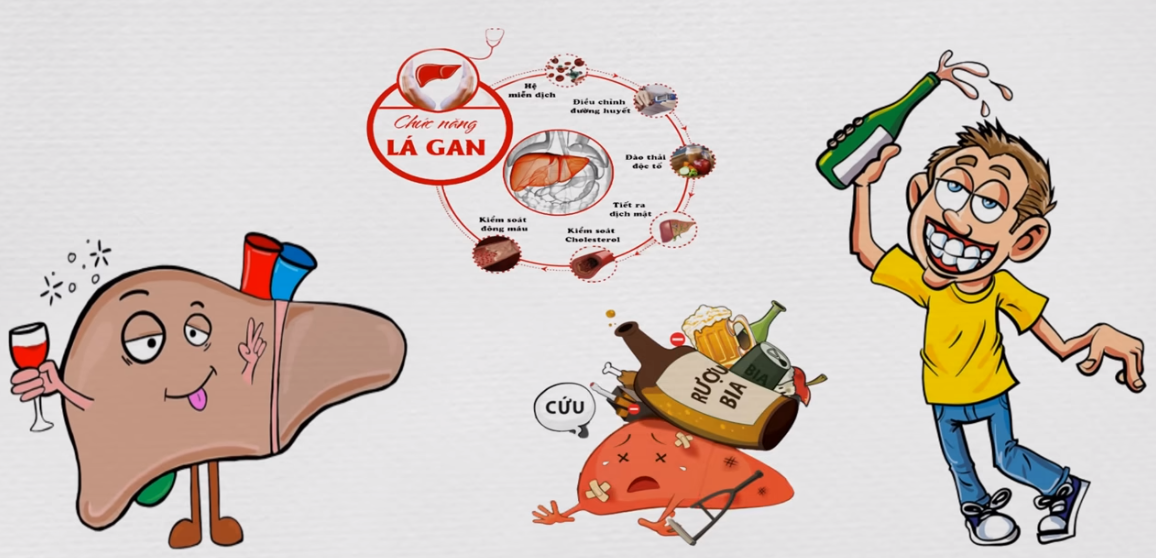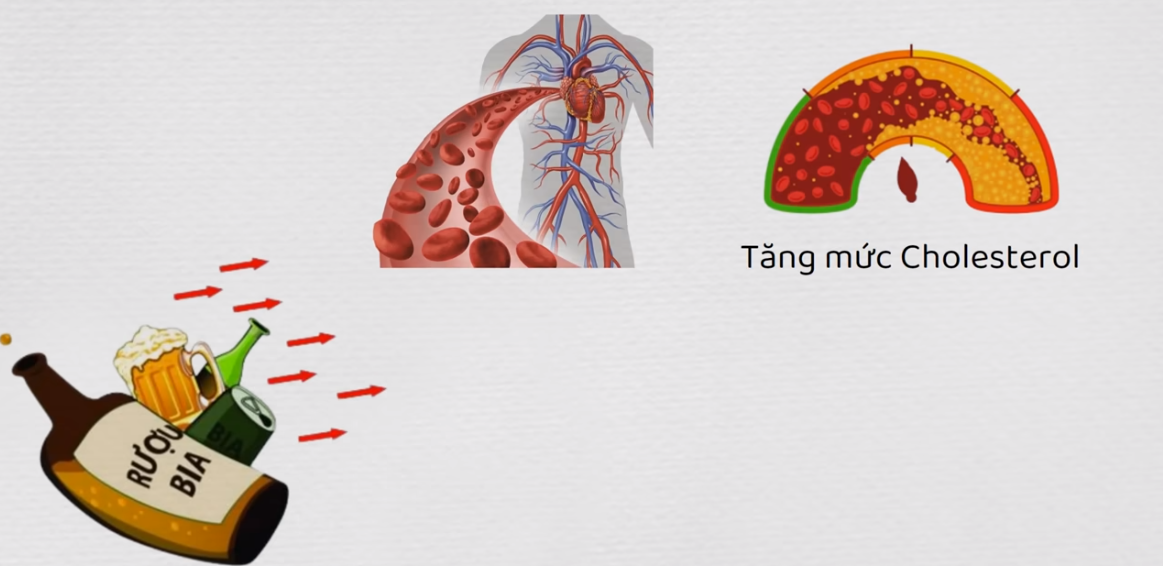I see that there are many people, especially high-ranking leaders, who eat extremely cleanly, avoiding all sorts of things, for example, fish must be fresh, meat must have a clear source, and vegetables must be grown by gardeners themselves. In general, no chemicals, and if it's a little dirty, they definitely won't eat it. They regard health as gold.
But after all the essence of maintaining oneself through eating, they drink alcohol like a fish, which is like you have been saving every penny for a whole year and then staying up all night playing a game of chance and ending up with nothing left in your pocket; life is paradoxical like that.
So is alcohol very dangerous?
The effects that alcohol will have and change your body, the information in this article is compiled based on articles from the US addiction center.
Some short-term effects when you drink alcohol (a small amount of alcohol).
When you drink a small amount of alcohol, your body will react in many ways.
In the brain, alcohol will slow down substances and hinder the brain's ability to control the body, changing mood, slowing reflexes, and affecting stress; it will also affect learning, memory, and sleep.

For the heart, alcohol will increase your heart rate and dilate your blood vessels, causing more blood to flow to the skin, making you feel warm. However, this heat will transfer through the skin, causing you to lose heat, and then you will see that people who drink alcohol often tend to catch colds easily.
In the digestive system, alcohol is first broken down in the stomach, promoting an increase in digestive juices; alcohol also irritates the small intestine and colon, where alcohol is further broken down and absorbed, and it can also alter the normal speed at which food moves through them, which can lead to stomach pain, bloating, and diarrhea.
In the kidneys, alcohol causes the body to become dehydrated, which can affect the kidneys and the body's ability to regulate fluids and electrolytes; it also disrupts hormones affecting kidney function.
In the liver, in fact, most alcohol is metabolized in the liver, helping to filter circulating blood, removing and destroying toxins, including alcohol. The liver can handle a certain amount of alcohol, but when a person continues to drink, it can become stressed and pressured to the point of causing permanent damage.

Moreover, drinking too much alcohol even in a single occasion can increase the risk of harmful side effects on the heart, including cardiomyopathy, which means your heart has difficulty pumping blood, arrhythmias, which are irregular heartbeats, high blood pressure, and stroke.
Additionally, consuming too much alcohol on a single occasion can also put you at risk of alcohol poisoning, which can occur when your body is overwhelmed by the amount of alcohol you have consumed and can no longer process it effectively out of your system. You may experience negative effects on breathing and heart rate. Severe alcohol poisoning can lead to coma and even death.
The long-term effects on the body when you drink too much alcohol.
When you drink too much alcohol and for a long time, the long-term effects of alcohol can damage many important organ systems in your body, such as:
First is cardiovascular: Besides the cardiovascular effects mentioned above, drinking a lot of alcohol also poses a risk of heart damage; excessive alcohol consumption can increase your cholesterol levels.

Second is harming health: The long-term effects of alcohol on the brain can affect memory loss, learning, and behavior; alcohol abuse can lead to brain shrinkage, loss of gray matter, and loss of white matter.
Third is the impact on liver health: Your liver is a healthy organ, but if it cannot keep up with the long-term effects of alcohol, it will increase the risk of fatty liver, alcoholic hepatitis, cirrhosis, and even liver cancer.
Fourth is harming the pancreas: Drinking a lot of alcohol will lead to vitamin deficiencies due to poor absorption and poor diet. Additionally, it can also contribute to the development of pancreatitis, which means inflammation and swelling of the blood vessels of the pancreas, which can harm your ability to digest food and absorb nutrients.
Fifth is the risk to the immune system: Drinking too much alcohol for a long time can reduce the body's ability to fight infections and diseases. Thus, long-term drinkers will be more susceptible to many illnesses.
Sixth is increasing the risk of cancer: The development of many different types of cancer can be influenced by alcohol. There is clear evidence that heavy alcohol use, especially in combination with tobacco, can affect the development and increase the risk of breast cancer, liver cancer, esophageal cancer, brain cancer, colorectal cancer, melanoma, prostate cancer, and pancreatic cancer, as well as head and neck cancers. The National Cancer Institute recommends that alcohol can increase the risk of head and neck cancers by at least 2 to 3 times in those who drink more than 3.5 drinks per day.
Seventh is that drinking a lot of alcohol also harms bones: Alcohol can weaken your bones and increase the risk of fractures, high uric acid levels, and gout are more common in people with alcohol use disorders.
Additionally, drinking a lot of alcohol also increases the risk of unintended pregnancies or sexually transmitted diseases, and especially for pregnant women, consuming alcohol during pregnancy is extremely dangerous. There is no amount or type of alcohol considered safe to consume at any time during pregnancy. In fact, alcohol use during pregnancy is the leading cause of developmental disabilities and birth defects in children.
Using alcohol during pregnancy can increase the risk of miscarriage, stillbirth, and a range of intellectual, physical, and behavioral disabilities. These later disabilities are classified as fetal alcohol spectrum disorders with characteristics such as small head size, poor memory, poor reasoning and judgment skills, delayed speech, intellectual disabilities, or low IQ, and issues with vision, hearing, heart, kidneys, etc.
In summary, alcohol is very harmful, especially if consumed in large amounts and for a long time. Therefore, if not absolutely necessary, we should limit it as much as possible, especially for pregnant women who should not recklessly drink alcohol because the baby in the womb may have to endure a very dark future.
Thank you for reading the article. Goodbye and see you again.
